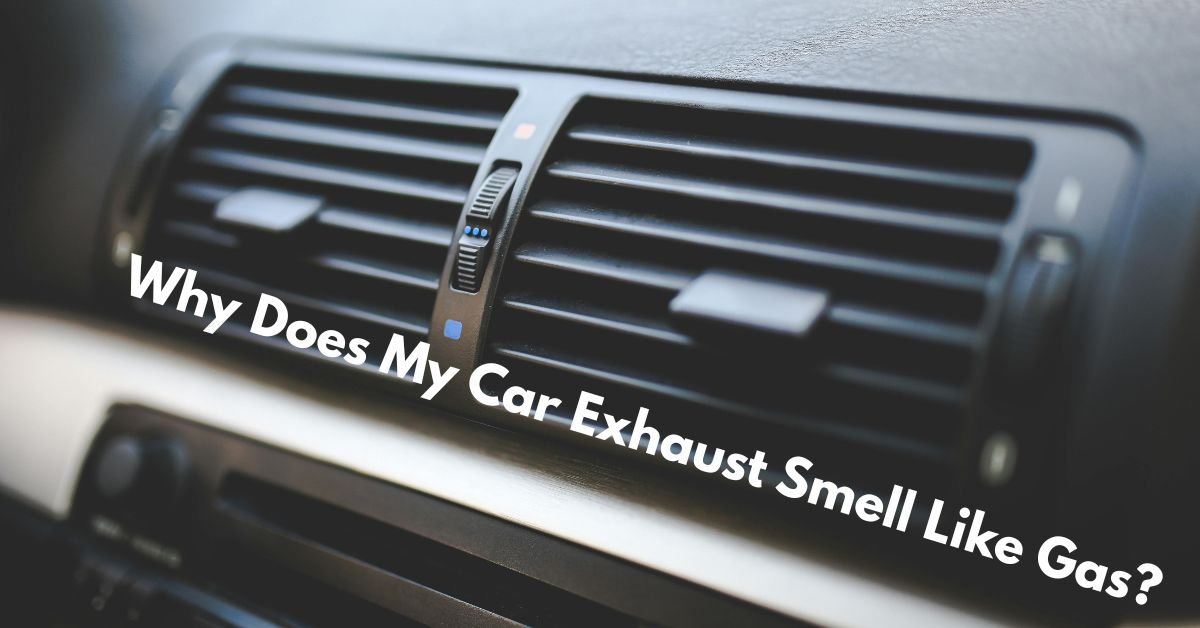If you’ve ever caught a whiff of gasoline while your car is running — especially near the exhaust — you’re right to be concerned. A gas-like smell from your exhaust isn’t just unpleasant; it can also indicate a problem that needs attention. Whether you’re a weekend DIY mechanic or just someone trying to understand your car better, here’s a breakdown of what could be causing that fuel smell, what it means, and what you should do next.
Why Does My Car Exhaust Smell Like Gas?
1. Unburned Fuel in the Exhaust System
Unburned fuel passing through the engine and out the tailpipe is the most frequent cause of a gas smell coming from the exhaust. The term “rich” describes a fuel-to-air mixture that contains too much gasoline and not enough oxygen, which is often what your engine is running.
Possible causes of a rich fuel mixture:
- Faulty oxygen sensors – These sensors monitor how much oxygen is in the exhaust and help the engine adjust the fuel mixture. If they fail, your engine might burn more gas than it should.
- Malfunctioning fuel injectors – Stuck-open or leaking injectors can send too much fuel into the combustion chamber.
- Bad fuel pressure regulator – A faulty regulator can cause excessive fuel pressure, leading to an overly rich mixture.
- Dirty or clogged air filter – This restricts airflow into the engine, disrupting the ideal air-fuel ratio.
2. Exhaust System Leaks
Sometimes, the smell of gas might not actually be from the exhaust gases themselves, but rather from a leak in the exhaust system, especially near the engine or under the car. If the leak is close to the engine bay or passenger compartment, it might allow unburned or partially burned fuel vapors to escape before being fully processed by the catalytic converter.
What to check:
- Look for rusted or cracked exhaust components.
- Listen for unusual hissing or popping noises while the engine is running.
- Check for the smell right after startup — when the exhaust system is cold, leaks are more noticeable.
3. Worn or Failing Spark Plugs
Spark plugs are critical for burning the air-fuel mixture in the engine. If they’re dirty, worn, or misfiring, the combustion process won’t be complete, allowing raw fuel to pass through the engine and out the exhaust.
You might also notice:
- Poor engine performance
- Rough idling
- Decreased fuel efficiency
If it’s been a while since your last tune-up, replacing the spark plugs and wires could eliminate the smell — and improve your vehicle’s performance.
Must Read: Why Are My Car Windows Fogging Up Inside When Parked?

4. Evaporative Emission System Issues (EVAP)
The EVAP system is a mechanism built into your car that collects and recycles fuel vapors. If something in this system fails, those vapors can leak and make it seem like the exhaust smells like gasoline, even if it’s not the true source.
Common EVAP issues include:
- Cracked or loose gas cap
- Leaking EVAP hoses
- Faulty purge valve or charcoal canister
A diagnostic scan tool can often detect EVAP system leaks and related trouble codes.
5. Cold Starts and Short Trips
Not all gas smells are signs of impending catastrophe. On cold starts, your engine may run a bit richer than usual until it warms up, especially in older vehicles. Similarly, if you only take short trips, your catalytic converter may not heat up enough to properly process exhaust gases.
If the smell disappears after a few minutes of driving, and your car runs normally otherwise, this might be the cause. Still, if it’s persistent or gets worse, have it checked out.
Final Thoughts: Don’t Ignore a Gas Smell
A gas-like smell from your exhaust is a sign that something isn’t quite right. While it might be a minor issue like a loose gas cap or dirty spark plug, it could also point to a more serious problem that affects your fuel economy, engine health, and even your safety.
If you’re not comfortable diagnosing the issue yourself, it’s best to have a trusted mechanic take a look. Ignoring the smell could lead to more expensive repairs down the road — or worse, create a fire hazard.
